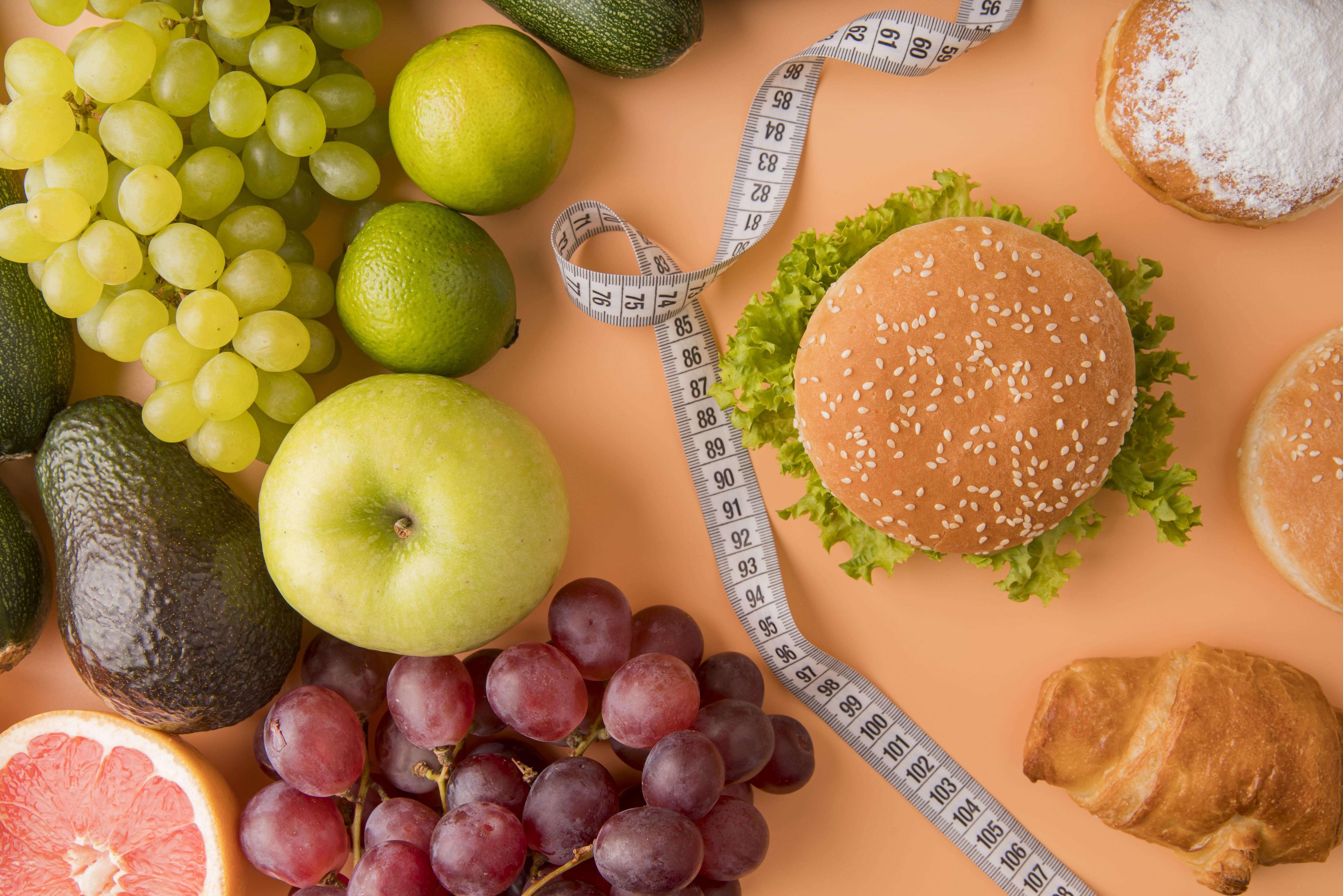
It is important for your child to get a variety of nutrients, which are found in a variety of foods. Make sure you choose foods that are high in lean protein. You can get lean protein from meat, fish, poultry, beans, seeds and nuts as well as dried fruits. Vegetables can also be good options, provided they aren't processed and have low sodium levels. Whole grains are better for children than refined grains, particularly whole grains made from whole wheat. These grains have more fiber that refined grains. Low-fat dairy products can be a good source of calcium.
Water is essential for children. Enough water helps regulate body temperature and cell function, and their water intake should be varied depending on their age and sex. Children who eat high-calorie foods are at greater risk of tooth decay, weight gain, heart disease, and type 2 diabetes. You should restrict the consumption of high-calorie foods for your child. Consume a variety whole grains, in addition to fruits and veggies.

It is important to remember that your child's diet needs to be balanced between high energy needs for growth and development and a low-fat, high-fiber diet during adulthood. Before making any changes to the diet of your child, it is a good idea to consult a physician. Also, you should introduce new foods slowly and consult your pediatrician. You must not overload your child with fiber, as it will interfere with absorption of vitamins and minerals.
When it comes to child nutrition, there are many important details that you should know. It is impossible to provide all nutrients for a child's body, but it is important to know the basics. As they get older, your child's needs for vitamins and minerals change. You must ensure that your child has adequate calcium intake every day. This will help to ensure their overall health. Your child will develop healthy habits by eating lots of vegetables and fruits.
Your child requires a lot of energy, in addition to calcium. Their bodies are constantly growing and they require lots of nutrients. You should therefore choose foods that have a high energy level. A low-fat diet could lead to them becoming underweight. These foods should also be rich in vitamins or minerals. Remember that young children may require different amounts of vitamins and minerals depending on their level of activity.

It is vital to know the best foods for children. A child's daily diet should include the right combination of vitamins or minerals. Their weight and height determine the child's BMI. Your pediatrician should be consulted. It is important to choose healthy foods for your child. Many food products are high in vitamins or minerals.
FAQ
Is cardio exercise good for your health or bad?
Cardiovascular exercise has many benefits. It improves blood flow, strengthens your heart muscle and increases stamina.
Cardiovascular exercise includes running, biking, hiking, swimming, tennis, basketball, soccer, volleyball, football, etc.
It is important to keep in mind that cardio exercises should not only be performed at a high level of intensity, but also at low levels. Doing this could lead to injury.
The cardiovascular exercise should only be performed if you feel good.
Never push yourself past your limits. You could injure yourself if you do.
It is important to warm up before you begin any cardiovascular exercise. Start slowly increasing your intensity.
Be aware of your body and listen to it. If you feel pain while performing cardiovascular exercise, it is important to stop immediately.
It is also recommended to take some time off after a cardiovascular exercise. This allows your muscles time to recover.
To lose weight, you should include cardiovascular exercise in your daily routine.
It is the most effective way to burn calories and reduce belly fat.
What is a good 7-day workout schedule?
A seven-day exercise program should consist of three days per week of cardiovascular training (running, biking, swimming), two strength exercises (using free weights, weight machines), and one flexibility/core workout (yoga, Pilates). Each activity should be performed at least once each week. Each session should last no more than 45 minutes.
Cardiovascular Exercises: Running, biking, swimming
The goal is to get in at least 60 minutes of cardio activities per week. Try to do 75 minutes per semaine for the best results. Cardio exercises can be used to increase blood flow, stimulate muscle growth, and improve blood circulation.
Strength Training
Cardio exercises work on the heart and lungs. Strength training works on the muscles and bones. Strength training is a great way to build lean muscle mass that helps you burn calories even if you are not actively exercising.
Flexibility and Core Workouts
Flexibility and core workouts are great ways to strengthen your entire body. Both yoga and Pilates are excellent options.
How Metabolic Health is Key to Aging Well
People live longer today than ever before. But as they do, they're also getting sicker. Our current medical science approach is not working, even though we've made many advances.
It is time to change the way we view health and aging. To achieve healthy aging, we must look at metabolic health as more than just weight loss. It is also important to consider overall wellness.
Your metabolism must be strong and healthy to ensure you live an active lifestyle for many years to come.
There are many options to improve your metabolic health. One way to improve your metabolic health is to incorporate these seven foods into your daily diet.
-
Resveratrol is a component of blueberries that has been proven to improve cellular longevity. They also provide antioxidants and vitamins C & E.
-
Lentils and pinto beans, which are legumes, provide great fiber and plant-based sources of protein. These nutrients are important for maintaining blood sugar levels that don't spike, crash or change.
-
Broccoli contains the antioxidant sulforaphane. This has been shown in studies to protect DNA. It may even slow down the progress of cancer.
-
Chia Seeds have high levels of omega-3 fatty oils and fiber. They're also loaded with antioxidants and protein. All these nutrients support heart health, brain function and gut health.
-
Green Tea contains polyphenols called catechins. The catechins in green tea have been linked to reduced bone fractures, cardiovascular disease, cognitive decline, and diabetes risk.
-
Salmonis a great source of lean protein. It is low in saturated fat and high in vitamin D.
-
Walnuts are high in omega-3s. They also contain antioxidants like alphalipoic Acid (ALA). ALA helps boost energy production and protects against inflammation.
Statistics
- Get free shipping and 25% off today. (healthline.com)
- Cardmembers earn 5% Back at Amazon.com with a Prime Credit Card. (amazon.com)
- According to the American Heart Association, blood pressure should be checked at least once every two years, beginning at age 20. (my.clevelandclinic.org)
- According to the American Academy of Dermatology (AAD), men over 50 are at a heightened risk of developing it. (healthline.com)
- The PRS enabled risk stratification for overall prostate cancer and lethal disease with a four-fold difference between men in the highest and lowest quartiles (HR, 4.32; 95% confidence interval [CI], 3.16-5.89). (pubmed.ncbi.nlm.nih.gov)
External Links
How To
What nutrients do men need each day?
For healthy growth and development, men need to eat a balanced diet. The body requires vitamins and minerals, protein, carbohydrates, fats (fats), water, fiber, as well other essential elements.
The male body also requires specific nutrients at different times throughout the day. Your body makes hormones, antibodies and enzymes when you are asleep. You use protein to build muscles and repair damaged tissue when you wake up.
Your body uses the night to break down fat and store extra energy as glucose. Your body requires fewer calories, but still needs enough nutrients. You can have a snack at night if you feel hungry.
For your body to function properly, it needs adequate amounts of protein and carbs. After a hard workout, muscle soreness may occur.
To prevent this, you should eat carbs as well as protein within the first two hours after training. Your body will use stored glycogen to produce glucose for energy.
Additionally, it is important to eat protein right away after your workouts are over. This prevents the breakdown of muscle tissue that occurs while you sleep.
During periods of intense physical activity, your body produces lactic acid. It builds up in your bloodstream, which can lead to fatigue. This can be avoided by eating foods high in carbohydrates like fruits and vegetables.
Carbohydrates provide energy for your body to recover after strenuous exercise.
Additionally, lean meats, fish and eggs, dairy products, yogurt, cream, cheese, yogurt and beans can be added to your diet.
All of these foods have high-quality protein. Protein aids in muscle growth and repair of damaged tissues. It provides amino acids that your body needs in order to produce sexhormones and testosterone.
You also need enough dietary fats to maintain good skin, hair, nails, and joints. Healthy men need between 20% and 35% of their total caloric intake from fat.
Fat helps keep your heart strong and protects against cancer. It also keeps your brain functioning properly.
Vegetable oils such as sunflower oil and soybean oil can provide most of your fat needs.
These oils have high amounts of monounsaturated oil fatty acids, (MUFAs). MUFAs can lower cholesterol levels and reduce inflammation. They protect your cells from damage by free radicals.
Saturated fats are found in animal products including meat, dairy products, butter and other dairy products. SFAs are known to raise LDL ("bad") cholesterol and raise triglycerides. They promote weight gain and abdominal fat.
Polyunsaturated oils (PUFAs), are found in plant-based foods like nuts, seeds and vegetable oils. PUFAs help improve cardiovascular function, and lower inflammation. They help to control blood sugars and cholesterol.
Erectile dysfunction can often be a problem for men who have low HDL ("good") levels of cholesterol. Consuming high amounts of saturated fats can increase bad cholesterol and lower good cholesterol.
Men who eat lots of red meat or pork can develop prostate problems. This is because these foods contain high amounts of nitrates. When cooked at high temperatures, nitrates can be converted to nitrosamines. These compounds can cause cancer.
Nitrites and other harmful chemicals are common in processed meats. You should avoid them.
The American Heart Association recommends limiting red meat intake to two meals per week. Instead, opt for poultry, fish, legumes and tofu as well as whole grains bread and cereals.